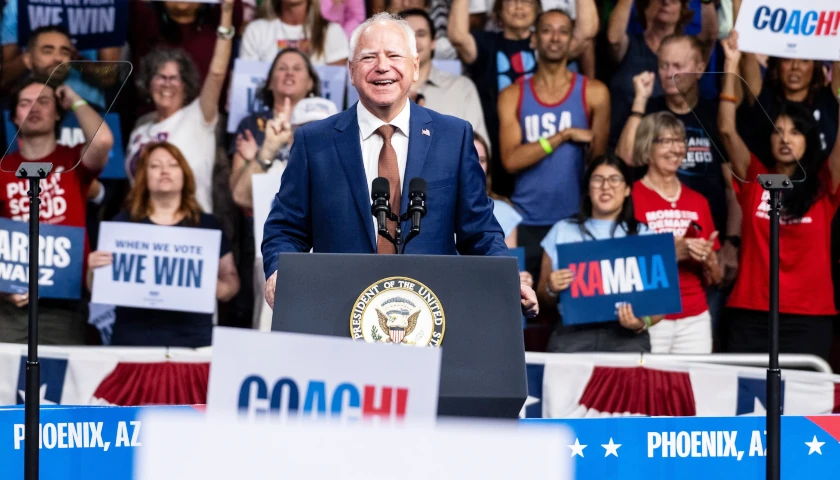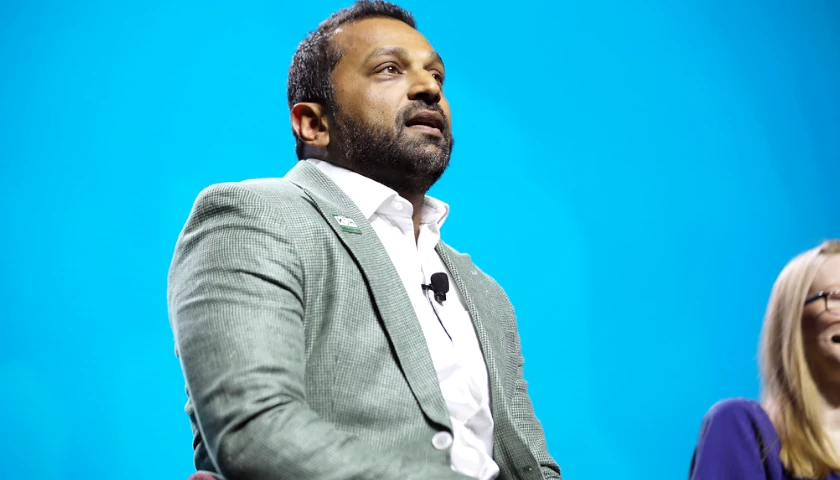by Hank Long
Over the span of 48 hours, national news outlets have reported that Democratic vice-presidential candidate Tim Walz went from declaring he’d like to see the Electoral College abolished in favor of a national popular vote to seemingly walking back that statement in a sit-down interview on ABC News.
But those who pay attention to not just what the Minnesota governor says on the national campaign trail, but what he has done in his capacity as governor, know better.
On May 21, 2023, Walz signed a wide-ranging state government spending bill into law that included a provision that officially enters Minnesota into an interstate national popular vote compact. The bill passed on party lines, in both the state House and Senate, where Democrats maintain a majority.
Walz signed that bill into law at the conclusion of the 2023 legislative session, despite having been on record telling Minnesota media he wouldn’t sign any election reform bills that didn’t have bipartisan support.
Democrat sponsors of the national popular vote compact provision had been outspoken throughout the legislative session about their desire to see the nation abandon the Electoral College as a means of electing a president.
“There is nothing sacrosanct in awarding the electoral votes to the winner of the popular vote within a state,” said Rep. Mike Freiberg, DFL-Golden Valley, during a legislative hearing on the provision.
Under the national popular vote compact, each member state would award its electoral votes to the winner of the national popular vote. The compact would only take effect if states with an equivalent of 270 electoral votes sign on. If that were to happen, then the winner of the national popular vote would become president. Currently, states award their electoral votes to the winner of the popular vote within each state.
While Walz never publicly endorsed the provision during the 2023 legislative session, he signed the provision into law without any hesitation.
Eighteen months later (on Tuesday), Walz told supporters at a fundraiser with California Gov. Gavin Newsom that “I think all of us know the Electoral College needs to go. We need a national popular vote that is something. But that’s not the world we live in.”
Later that evening, officials with the Harris-Walz campaign clarified Walz’s statements did not reflect the position of the campaign, or Harris herself.
Walz wasn’t clear when pressed on whether his stance differs from Harris
In an interview with ABC News that aired Friday, Walz appeared to backtrack on his comments. But interviewer Michael Strahan never mentioned during the interview that Walz had signed legislation into law in Minnesota that would move the nation one step closer to abolishing the Electoral College.
“I want to go back to something you said on Tuesday,” Strahan said. “You said, ‘I think all of us know the Electoral College needs to go.’ But the campaign came out later that night and they said it’s not their stance.”
Tim Walz attempts to clarify his comments calling for abolishing the Electoral College: "The campaign and my position is the campaign's position." pic.twitter.com/ZBmcbBv5vE
— Alpha News (@AlphaNewsMN) October 11, 2024
Walz interjected.
“Well, it’s not the campaign’s position,” Walz explained. “And the point I’m trying to make is that there’s folks that feel every vote must count in every state. And I think the sense, some of folks feel, that’s not the case. Our campaign does that. And the point I am saying is, I’m in five states in two days, we’re out there making the case, that the campaign’s position is clear. That that’s not their position. Their position and my position is to make sure that everybody understands their vote no matter what state they’re in, matters.
“So that’s something you and Vice President Harris disagree on?” Strahan asked.
“Um, I have spoken about it in the past,” Walz said. “She’s been very clear on this. And the campaign and my position is the campaign’s position.”
– – –
Hank Long is a journalism and communications professional whose writing career includes coverage of the Minnesota legislature, city and county governments and the commercial real estate industry. Hank received his undergraduate degree at the University of Minnesota, where he studied journalism, and his law degree at the University of St. Thomas. The Minnesota native lives in the Twin Cities with his wife and four children. His dream is to be around when the Vikings win the Super Bowl.
Photo “Tim Walz” by Tim Walz.




